Genetics
-
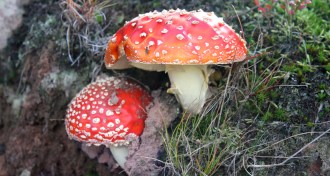 Life
LifeGene study digs into partnership between fungi and plants
Fungal genes for symbiotic relationship with plants evolved a few times, and relatively recently, a study suggests.
-
 Psychology
PsychologyGene variant may foretell success in program for at-risk kids
Disruptive children with DNA twist show biggest turnaround with 10-year intervention.
By Bruce Bower -
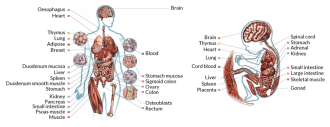 Genetics
GeneticsCatalog of DNA modifications produces surprises
A map of chemical modifications of DNA and its associated proteins shows how the genome changes during development and disease.
-
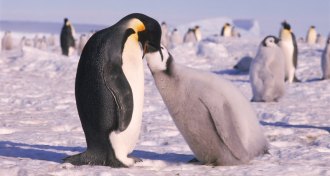 Genetics
GeneticsFor penguins, it’s a matter of no taste
Penguins lack taste genes for bitter, sweet and umami.
-
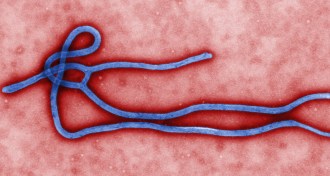 Genetics
GeneticsEbola virus evolution tracked by genetic data
Analysis of Ebola genomes shows how the virus has evolved and some of the mutations that may thwart treatments.
-
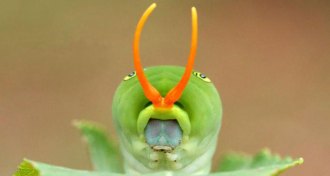 Animals
AnimalsTiger swallowtail genome gives clues to insect’s stinky defense
Clues within the genetic code of the Eastern tiger swallowtail butterfly (Papilio glaucus) explain how it developed a smelly defense against predators.
-
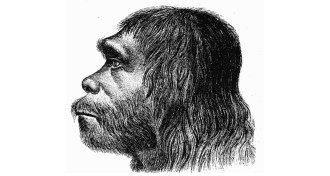 Genetics
GeneticsAncient East Asians mixed and mingled multiple times with Neandertals
East Asians’ ancestors interbred with Neandertals more than once, explaining why modern East Asians carry more Neandertal DNA than Europeans do, two studies suggest.
-
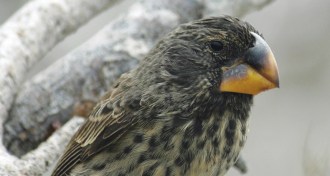 Life
LifeThe genetic evolution of Darwin’s finches
A genetic analysis divides Darwin’s finches into more species and uncovers a gene involved in determining beak shape.
-
 Humans
HumansBaby brains undergo dramatic changes in utero
Developing human brains experience more than 28,000 changes in a molecular process that governs gene activity.
-
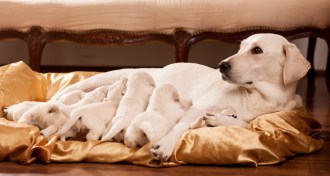 Genetics
GeneticsPregnancy in mammals evolved with help from roving DNA
DNA that “jumped” around the genome helped early mammals shift from laying eggs to giving birth to live young.
-
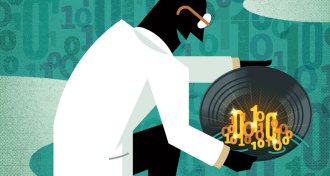 Science & Society
Science & SocietyBig data studies come with replication challenges
As science moves into big data research — analyzing billions of bits of DNA or other data from thousands of research subjects — concern grows that much of what is discovered is fool’s gold.
-
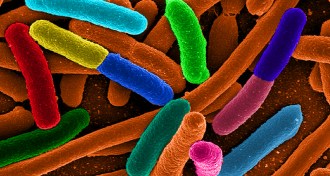 Genetics
GeneticsScientists find new way to corral genetically engineered bacteria
Engineering E. coli to depend on human-made molecules may keep genetically modified bacteria from escaping into nature.